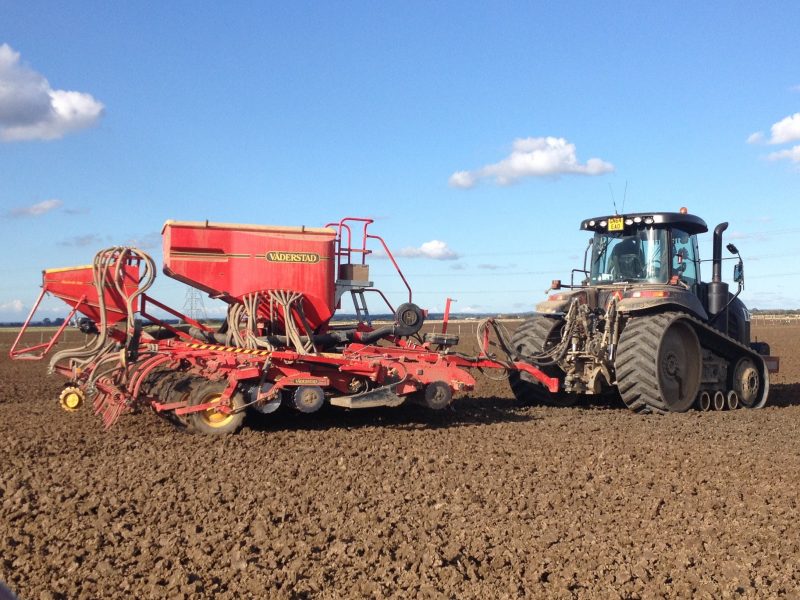The combines have all but finished here on Romney Marsh. Yields, as per the rest of the UK, are well below average so the country is likely to be a few million tonnes short on previous years. Normally disappointing yields would be compensated by better prices, but now wheat is a global commodity and there are ample reserves in the rest of the world, prices will not rise.
Our attention has now turned to planting next year’s crop. Margins are tight so every cost saved is a bonus. The expensive traditional ploughing and cultivating have been replaced by a min-till system that includes killing all the weeds with glyphosate. This chemical may be getting a bad press at present, including scare stories in Rye News, but glyphosate is a vital chemical for farmers if they are to feed a rising population. Each farmer now feeds 160 people, up from only 26 people in the 1960s, so every technology and crop advance is welcome.
When Monsanto first produced glphosate in the ’70s, it was thought to be the safest chemical produced; so safe that even now it can be purchased at the supermarket and added to your trolley along with your food [usually under the trade name “Roundup” – Ed]. Legend had it that a certain Monsanto rep used to drink a small nip to prove the theory. Hopefully he didn’t die a horrible death in later years!
So far there is no solid evidence that glyphosate is anything but safe, despite a relentless campaign by environmental and anti GM groups to get it banned. We all have a choice whether to buy cheap food or pay more for organic, so trying to get something banned that has never been proven to have killed anyone while thousands starve from hunger each year seams bizarre.
There always appear to be food scares but the reality is that, as farmers, we never sell anything that we wouldn’t be prepared to eat ourselves. The fact everyone is living longer just means that we can’t be doing too bad a job!
Photo: Simon Wright



